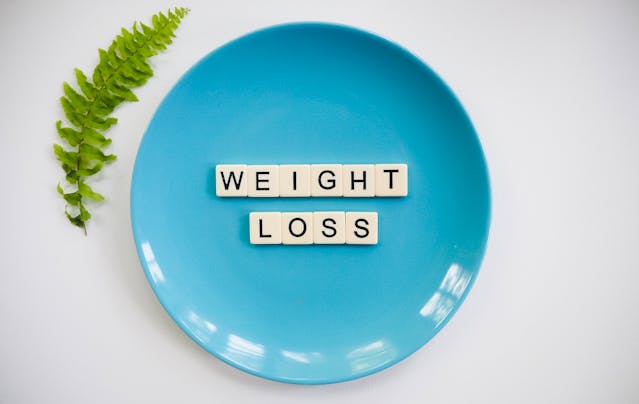Losing weight and maintaining it over the long term often feels like an overwhelming challenge, especially when popular culture promotes intense dieting, rapid results, and extreme fitness regimens. Research and real-life experiences consistently show that sustainable weight loss is less about drastic overhauls and more about consistent, manageable shifts in daily habits. Small changes, when practiced, can lead to significant and lasting results. By focusing on practical lifestyle adjustments, rather than fleeting trends, you make the process more enjoyable and more achievable. In this post, we’ll explore how small but powerful modifications to your routine can create lasting weight loss success, without the burnout or guilt often associated with strict dieting.
Prioritizing Portion Control Over Elimination
One of the most effective changes you can make is focusing on portion control rather than eliminating entire food groups. People often assume that losing weight means cutting out their favorite foods altogether, but this mindset can backfire, leading to binge eating and guilt. Paying attention to how much you’re eating, rather than what you’re eating, can allow you to enjoy indulgences without sabotaging your progress. Tools like smaller plates, mindful eating, and serving sizes based on hunger rather than habit can prevent overeating while still making meals satisfying. Learning to listen to your body’s cues helps develop a healthier relationship with food, which is crucial for long-term success.
Understanding Prescriptions for Weight Loss
Prescription medications can be an important tool for individuals struggling with weight loss when combined with lifestyle changes. For some, a doctor may recommend options such as the Zepbound vial prescription, which is designed to support weight management alongside diet and exercise. These medications work by helping to regulate appetite or metabolism, providing an extra boost for those facing challenges with traditional methods alone. It’s important to approach any prescription under medical supervision to ensure safety and effectiveness. When used responsibly, weight loss prescriptions can complement healthy habits and offer renewed motivation, making sustainable progress more attainable for many people.
Incorporating Movement Into Everyday Activities
You don’t need to spend hours at the gym to see weight loss benefits. Simply moving more throughout the day can increase your daily calorie expenditure and boost your metabolism. Small changes, like taking the stairs instead of the elevator, walking during lunch breaks, or doing light stretches while watching TV, can accumulate into meaningful physical activity. This concept, often called “NEAT” (non-exercise activity thermogenesis), emphasizes the calories burned during routine tasks. By finding opportunities to be active in your regular environment, you create a more dynamic lifestyle that supports weight management effortlessly.
Building a Consistent Sleep Schedule
Sleep is often an underrated factor in weight loss, but poor sleep can disrupt hormones that regulate appetite and metabolism. When you’re sleep-deprived, your body produces more ghrelin (the hunger hormone) and less leptin (the hormone that tells you you’re full), making it harder to resist cravings and control portions. Creating a consistent sleep routine, by going to bed and waking up at the same time every day, can stabilize these hormones and improve well-being. Avoiding screens before bedtime, limiting caffeine intake late in the day, and creating a calming nighttime routine can all help you get more restful, restorative sleep that supports your weight goals.
Focusing on Hydration Rather Than Caloric Beverages
Switching to water or low-calorie drinks is another small adjustment that can have a substantial impact. Many people consume a significant amount of calories through sugary drinks like sodas, sweetened coffees, and juices without realizing it. Replacing just one or two of these beverages daily with water can create a calorie deficit that leads to weight loss. Staying hydrated helps with digestion, energy levels, and appetite control. People mistake thirst for hunger, leading to unnecessary snacking. By drinking more water throughout the day, you can better manage cravings and feel more energized, all while consuming fewer calories.
Planning Meals and Snacks Ahead of Time
Planning what and when to eat can prevent impulsive food decisions that often lead to overeating or unhealthy choices. When you’re busy or tired, convenience typically wins out, often in the form of fast food or processed snacks. Prepping meals and healthy snacks ahead of time allows you to stay in control and make choices that align with your goals. This doesn’t mean you need to cook elaborate meals each week. Even setting aside time to pack lunches, cut fruit and vegetables, or portion out nuts can help you stay prepared and reduce the temptation of grabbing high-calorie alternatives on the go. Consistency in preparation encourages consistency in healthy eating.
Long-term weight loss doesn’t require a complete lifestyle overhaul overnight. The most sustainable and rewarding results often come from a series of small, thoughtful changes that accumulate. By focusing on manageable habits, like portion control, daily movement, consistent sleep, better hydration, meal planning, and fostering a supportive environment, you build a foundation that promotes gradual, lasting success. These shifts may seem minor on their own, but their combined effect can transform your health and well-being in profound ways. Rather than chasing perfection, aim for progress, and let small steps guide you to big results.


